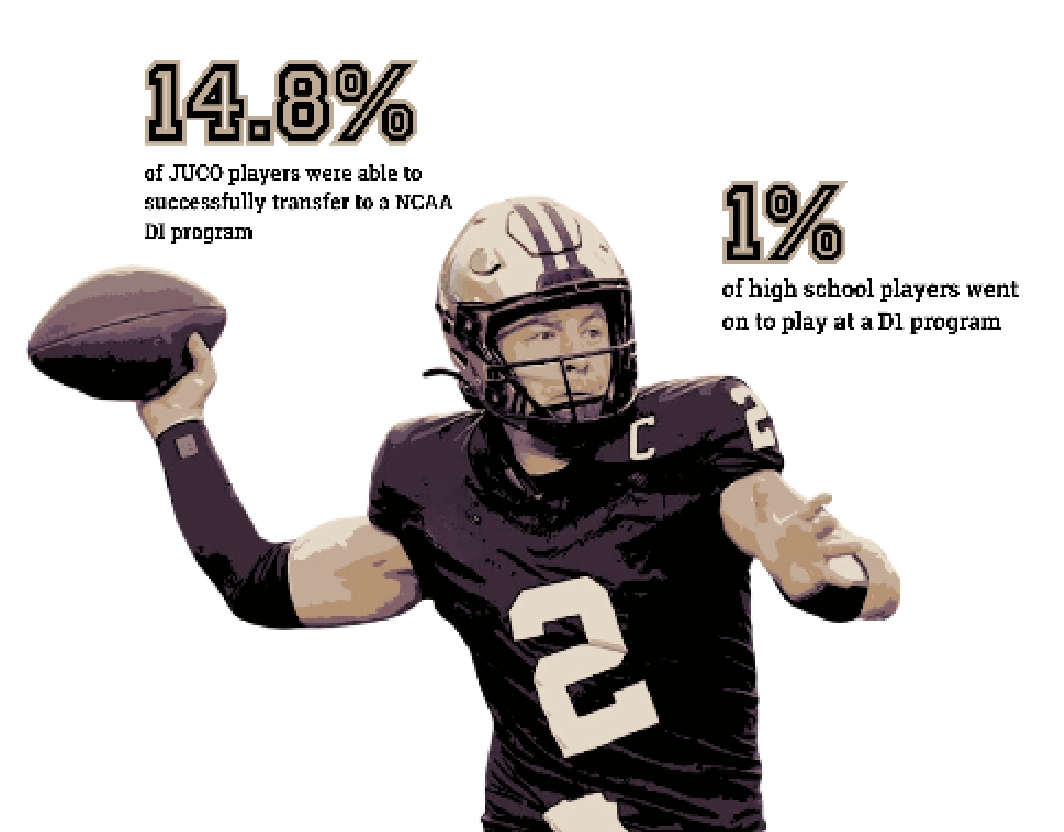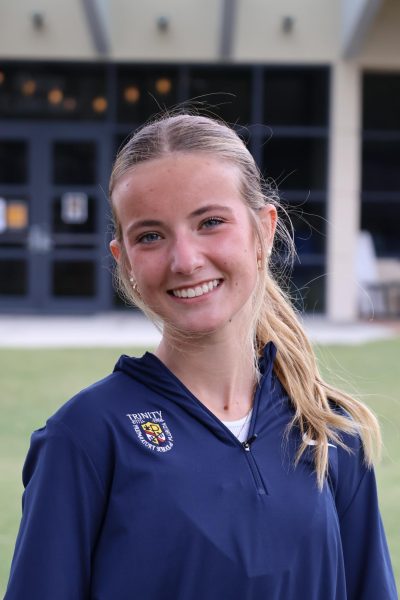Aaron Rodgers. Jimmy Butler. Josh Allen. While they are now superstars in their respective sports, each of them had a nonconventional journey to the top: JUCO. Otherwise known as Junior College, JUCO is a route for talented athletes who weren’t able or were limited in playing NCAA sports. This route can provide athletes ample time to develop athletically, academically, and socially.
Trinity Prep graduate Josh Cooper was a dominating presence on the basketball court, but injuries halted his ability to be recruited. Despite the setback, Cooper still had aspirations to continue playing basketball, and he now plays at JUCO Georgia Highlands College.
“My senior year at high school I had an injury, which really affected my playing and recruitment during that time,” Cooper said. “ The prospect of getting healthier and playing at JUCO to go on to play at a [Division I or Division II school], drove me
towards that decision.”
According to an NCAA study for basketball in 2018, 14.8% of JUCO players were able to successfully transfer
to an NCAA DI program as compared to 1% of high school players. Recent, more and more athletes have been looking to attend JUCOs and have only been granted two years of eligibility as they look to transfer to NCAA schools, giving them a combined 4 years of eligibility across the NCAA and JUCO. is cap often diminishes athletes’ chances to play professionally or gain traction in the college world.
Current Vanderbilt quarterback Diego Pavia previously played at JUCO and challenged the NCAA to extend JUCO players’ years of eligibility. As a result of Pavia v. the NCAA, JUCO transfers now have an additional year of eligibility on top.
Trinity Prep Athletic Director Colin Sullivan, who previously served as Deputy Athletic Director at Brown University, said this recent case can open up new possibilities and opportunities for JUCO players.
“The case … set a precedent for additional cases to grant up to four years of eligibility for active JUCO players in the NCAA,” Sullivan said. “[ is potential increase in eligibility] would allow more coaches to look at JUCO players because [they’re] getting somebody that’s… battle-tested, proven and already having two years of maturity.”
Rodgers and Pavia received little to no scholarship offers from DI schools and committed to JUCOs, looking to develop and gain attention from NCAA schools. They were then both able to transfer into prestigious universities for football — Rodgers to UC Berkeley and Pavia to Vanderbilt. By providing more years of eligibility, the recent ruling will allow more athletes to have
the opportunity to pursue higher education and work towards earning an undergraduate or postgraduate degree.
“In JUCO you are developing academically just as much as you are athletically; you are learning the necessities of what it means to be a student-athlete,” Sullivan said. “I think junior colleges are a great opportunity because not everybody is prepared to step right into that [traditional] four-year experience and even pursue additional years of education.” e NCAA’s decision with this case, as well as others creates a trend toward expanding players’ rights. Opening new windows for rule changes that could see JUCO players gaining up to four years of additional eligibility in the
NCAA , allowing them to play in JUCO without the concerns of losing years in the NCAA, which could almost serve as a gap year.
Also, the talent at top-ranked JUCOs allows for players to develop at a similar level to that of NCAA DI teams.
“Most of the players [at JUCOs] are either the best where they came from or top players on their team,” Cooper said. “Being able to bounce and create a bond with all these great players helps a lot in developing.”
Additional years of eligibility would allow JUCO players to benefit from increased NIL opportunities, helping them build their athletic and personal brands while also pro ting economically.
“The [potential] of getting four years of eligibility at DI or DII could benefit me, being able to still pursue education, doing what I love every day, and being able to make money from NIL,” Cooper said.
JUCO athletes having the same eligibility as students coming from high school in the NCAA could lead to a system where older, more physically developed athletes entering their first years of eligibility dominate traditional 4-year athlete. is trend could to increased competition at DI schools, which would have a trickle-down effect into lower NCAA levels.
“Roster opportunities are going to be limited,” Sullivan said. “If JUCO athletes are going to be in school longer they would be taking away opportunities from students that are looking to go directly from high school to a four-year program.”





